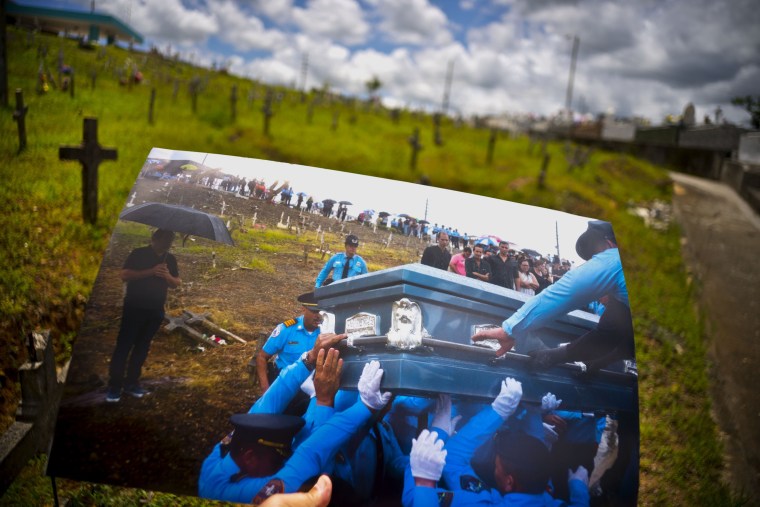MOROVIS, Puerto Rico — In the mountains here, there are still literal signs of desperation.
A piece of spray-painted wood reads: "We need light!"
This part of Puerto Rico has been without power for nine months — since a few days before Hurricane Irma hit late last summer.
Woodrow Reyes is terrified of what another hurricane season will bring. Hurricane Maria ripped apart his brother's home — and his 85-year-old father, Manuel, has been bed-ridden in the stifling heat.
“We’re American citizens and we feel like we’ve been forgotten,” he said.
His family has used a generator to get by at times but Reyes said they’re struggling to afford gas for it.
His daughter, Nicol Reyes, said she’s lost hope – but has decided to stay on the island because of her family.
“I just want people to know that we are suffering here and we need help because it's hard to stay this long without power,” she said.
Hurricane season officially started Friday amid serious questions about the island's preparedness and local officials' deflecting of a Harvard study suggesting that Maria's death toll may have been exponentially higher than first thought.
Hector Pesquera, Puerto Rico's commissioner of safety and public protection, told NBC News bluntly that the island's electrical grid can't withstand another hurricane.
"I'll tell you right now, ‘No,’" he said. "That is the weakest link right now ... we can't fix it in six months."
The Puerto Rico Electric Power Authority said Friday that 99 percent of its customers now have service. NBC News did see power crews working in Morovis. Workers said they believed that the electrical system was stronger now than before Maria — and they had been working diligently for months.
Michael Byrne, the Federal Emergency Management Agency’s top official in Puerto Rico overseeing the response to Hurricane Maria, said the agency had just 46 full-time staffers in Puerto Rico before that storm hit — but that this year, there will be about 3,000 workers on the island.
“We're ready,” Byrne said. “We’re in a much better place than we were last year.”
There are now four supply warehouses spread throughout the island. One near San Juan holds 2 million meals and 800,000 liters of water – enough to supply the island for several days until more resources arrive from the U.S mainland.
But San Juan's mayor, Carmen Yulín Cruz, told NBC News, "Puerto Rico is by no means ready" for hurricane season.
An outspoken critic of the federal and gubernatorial response to the disaster, Yulín Cruz said medical facilities are not ready to withstand another strong hurricane. She said it wouldn't take a Category 5 storm to devastate the island; a Category 1 would cripple the infrastructure.
"This is a tale of two disasters," she says. "One made by nature and the other that was government-made."
She blamed the Trump administration for trying to create a positive narrative in the hurricane recovery and she ripped Puerto Rico's government for being "complacent."
"Precious time was lost," she said. "Mistakes were made. And people died."
